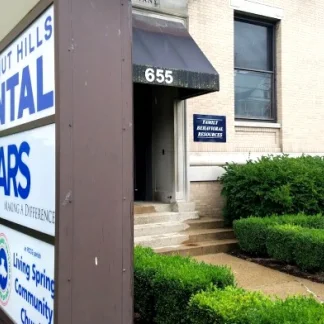Community Guidance Center
Community Guidance Center is a drug and alcohol rehab located in Indiana, PA. Th...
Accessible Recovery Services - Church Street provide the very best comprehensive medical care to those struggling with opioid addiction. Accessible Recovery Services - Church Street offer evidence-based treatment plans that include therapy to maximize the chances of a successful recovery.
At Accessible Recovery Services (ARS) the principal goal is that the patients get a full recovery, There is a lot of motivation and a wish to be the best version of you needed to get the full recovery that is why at ARS they don’t only focus at helping the patient’s addiction but also make them became the best version of themselves.
At Accessible Recovery Services – Church Street, they suggest individual and/or group cognitive-behavioral therapy to maximize the opportunity for successful recovery. They also count with an outreach program called We Can which consists in providing Narcan (naloxone) training to local businesses and organization as this can save a life in a case of fatal overdose. This program is offered to those who complete the primary care treatment.
Contact us for more information: (724) 591-5236

Connect with Accessible Recovery Services by calling their admissions team directly.
(724) 591-5236 Website Get DirectionsCognitive behavioral therapy is based on the idea that feelings and behaviors are caused by a person’s thoughts, not on outside stimuli like people, situations and events. People may not be able to change their circumstances, but they can change how they think about them and therefore change how they feel and behave, according to cognitive-behavior therapists. In the treatment for alcohol and drug dependence, the goal of cognitive behavioral therapy is to teach the person to recognize situations in which they are most likely to drink or use drugs, avoid these circumstances if possible, and cope with other problems and behaviors which may lead to their substance abuse.
Group therapy is any therapeutic work that happens in a group (not one-on-one). There are a number of different group therapy modalities, including support groups, experiential therapy, psycho-education, and more. Group therapy involves treatment as well as processing interaction between group members.
In individual therapy, a patient meets one-on-one with a trained psychologist or counselor. Therapy is a pivotal part of effective substance abuse treatment, as it often covers root causes of addiction, including challenges faced by the patient in their social, family, and work/school life.
Group therapy is any therapeutic work that happens in a group (not one-on-one). There are a number of different group therapy modalities, including support groups, experiential therapy, psycho-education, and more. Group therapy involves treatment as well as processing interaction between group members.
In individual therapy, a patient meets one-on-one with a trained psychologist or counselor. Therapy is a pivotal part of effective substance abuse treatment, as it often covers root causes of addiction, including challenges faced by the patient in their social, family, and work/school life.
In individual therapy, a patient meets one-on-one with a trained psychologist or counselor. Therapy is a pivotal part of effective substance abuse treatment, as it often covers root causes of addiction, including challenges faced by the patient in their social, family, and work/school life.
Community Guidance Center is a drug and alcohol rehab located in Indiana, PA. Th...
New Way of Life, operated by Firetree, is a reputable residential reentry rehabi...
Open Door is a private rehab located in Indiana, Pennsylvania. Open Door special...
Family Counseling Center is a private rehab located in Indiana, Pennsylvania. Fa...